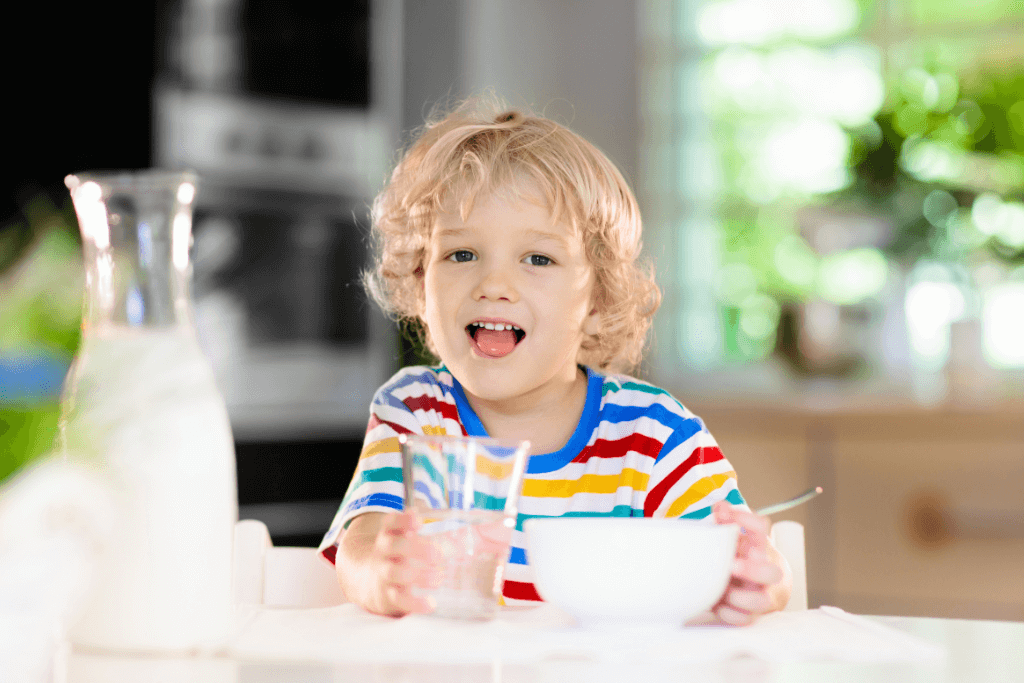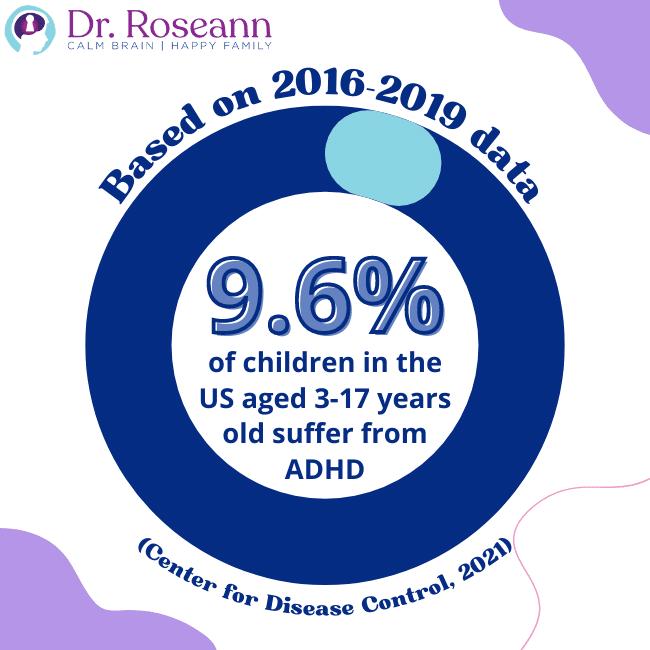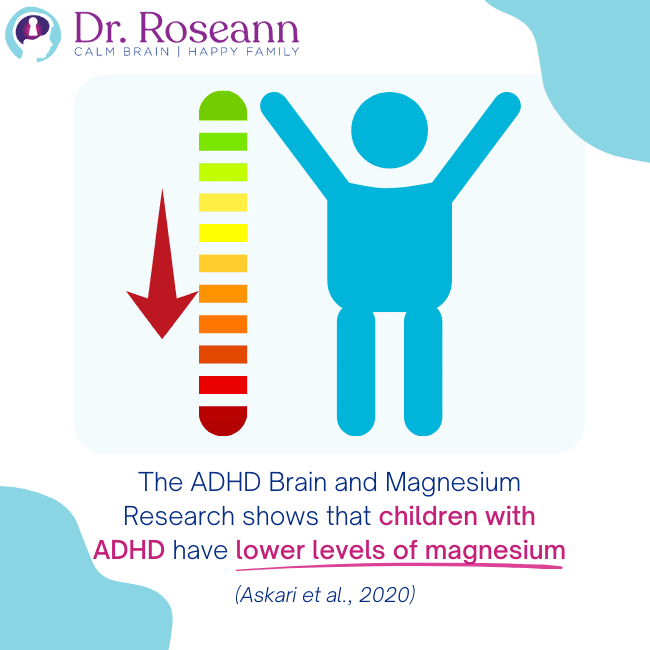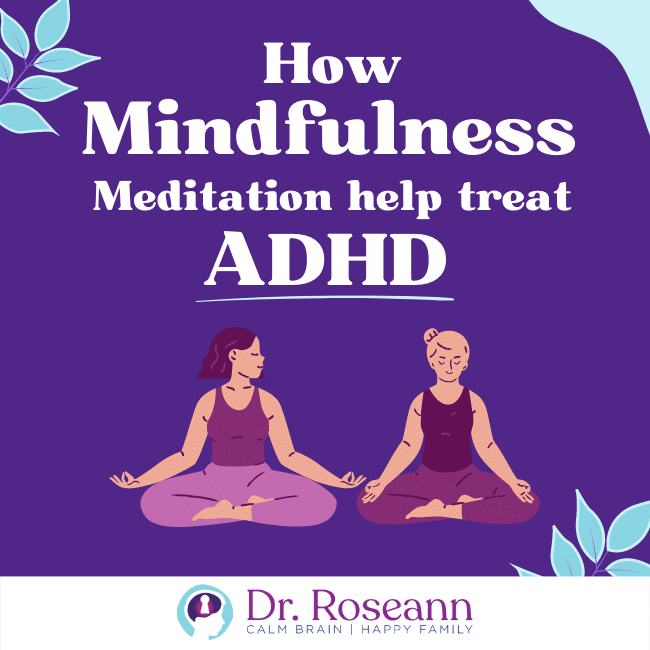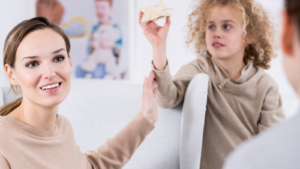If your child has ADHD, then he or she shows difficulties with impulse control, hyperactivity, and inattention. ADHD or Attention Deficit Hyperactivity Disorder is a clinical neurological disorder evident in kids and teens with self-regulation problems. It affects their emotional wellness, social skills, academic performance, and behavioral functioning.
It also occurs along a continuum of functionality with some children and teens mildly affected and others highly affected. As much as parents want to believe intellect is the determining factor in impairment, really it is their executive functioning skills that are.
Based on 2016-2019 data, around 9.6% of children in the US aged 3 to 17 years old suffer from ADHD (Center for Disease Control, 2021).
Contrary to popular belief, ADHD isn't a condition a kid will outgrow. Untreated ADHD may create a negative impact on your child's daily life and probably already does
Kids with ADHD have specific challenge areas, such as productivity, motivation, and executive functioning. On the other hand, they may also be very creative or artistic. For example, a child with ADHD may be exceptionally good at playing the piano, but is having a hard time finishing his school work.
To manage ADHD symptoms, physicians may prescribe stimulant medications as the first line of treatment to improve your kid's focus. While such drugs provide relief for a few hours, they may create short and long-term side effects. They may also experience dependence and withdrawal symptoms.
I know you are looking for a way to help your child or teen not just do better in school but also feel happy.
The good news is that there are natural remedies as alternatives. We're here to help parents overcome ADHD without the use of medication. At our center, we use natural options that are backed by science to address ADHD.
Here are some natural ways to help your kids do better in school, complete tasks, and get along with family members and other people.
Neurofeedback
Neurofeedback, which is also known as EEG biofeedback, can be used to treat ADHD in a non-invasive way. Typically after a QEEG or Electroencephalogram, a neurofeedback therapy session reinforces the subconscious and teaches the brain to change its behavior. It's like giving your kid's brain a good workout at the gym.
Neurofeedback trains the brainwaves and works to put the mind in a much more focused state by teaching it how to produce brain waves associated with concentration. After a few sessions, the brain learns how to work healthily. Unfocused brain waves are reduced and calm, focused ones are increased.
All these results in increased focus and motivation and decreased distractibility and impulse control issues for kids with attention deficit disorder.
Neurofeedback doesn't involve the use of ADHD medication, which has side effects. A certain degree of mental fatigue is its usual side effect, which is understandable because the brain is getting a solid workout.
In one study, sixty kids with ADHD aged 6 years of age and above were asked to undergo 40 sessions of EEG biofeedback training. Results show that 91% of the kids who are predominantly hyperactive, inattentive, or both benefited greatly from the therapy (Xiong et al., 2005).
Pulsed Electromagnetic Field (PEMF)
Research around PEMF therapy started in 1950 and it has been used since then to treat various conditions. The FDA has long approved the use of PEMF devices to treat injuries, pain, and many other physical health issues.
A study on patients suffering from depression, anxiety, neck pain, and disability showed significant improvements after 12 weeks of PEMF therapy (Hattapoglu et al., 2019).
PEMF helps the body get into a relaxed parasympathetic state. If your kid has ADHD, his or her brain function is likely stuck in a stressed, sympathetic dominant state because of the constant correction they need. It is stressful for both the parent and the child.
Such a state is characterized by negative thinking, irritability, racing mind, physical pain, muscle tension, gastrointestinal difficulties, and sleep disorders.
PEMF therapy works by directing electromagnetic pulses to damaged cells to stimulate cellular communications and activities. Essentially, the PEMF device re-energizes the mitochondria, the cell's energy powerhouse. When re-energized, the body and brain work more optimally and it is easier to have mental clarity.
The use of PEMF, more particularly our Calm PEMF™ device, calms your kid's brain. That way, your child can pay attention, think clearly, and take action. The Calm PEMF™ is a portable device, making it ideal for at-home treatment that can go a long way.
EFT or Tapping Therapy
EFT stands for Emotional Freedom Technique, which is also known as Tapping Therapy. It is both a self-help tool and one that psychotherapists use to help manage anxiety and stress in teens and adults.
EFT is effective for all ages but more particularly for younger children with ADHD. This technique also helps release stress, past traumas, and negative emotions.
The Emotional Freedom Technique is backed by science and research with several recent studies demonstrating its effectiveness. Meta-analyses and reviews of EFT show that its efficacy for depression, phobias, anxiety, and post-traumatic stress disorder is well-established (Bach et al., 2019).
Think of EFT as acupressure for your psychological and emotional state. It will gently, easily, and quickly release negative beliefs and emotions that cause the problem. This method is characterized by the act of tapping the fingertips on the chest, frontal lobe, and head.
It works by allowing kinetic energy to flow onto certain meridians while thinking about specific problems or making statements.
The physical tapping of the fingertips on certain points of the face or body helps clear the energy that is stuck there. EFT helps in balancing and opening the path so that energy freely travels through the channels and flows continuously all over the body.
As a self-help tool, EFT promotes wellness and helps in stress management. and promote wellness. When used in formal therapy sessions with licensed psychotherapists, it helps address a variety of clinical issues, including ADHD in kids.
Cognitive Behavioral Therapy
Cognitive Behavioral Therapy or CBT is also referred to as talk therapy, which is a psychological treatment of ADHD that emphasizes changing one's thinking patterns. How we think about a problem is often one of the biggest hurdles in getting better and even harder when the brain is dysregulated.
This form of psychotherapy is based on the core principles that a person's psychological problems are caused by faulty thinking patterns and unhealthy behavioral habits.
CBT also helps individuals learn better methods of coping with stress, distress, and other psychological problems by correcting one's bad behavior. This behavior therapy teaches your kids how to face their fears and learn to cope.
It also integrates role-playing, which is the best way to teach children how to deal with a problem because they get real-time feedback. It also boosts their confidence and problem-solving skills.
One study has concluded that CBT, when consistently applied by adults with ADHD, can create significant improvements in their daily functioning and self-efficacy (Sprich et al., 2010).
Another study was performed to replicate the same results on adolescents. The teens who participated in the said study were successful in learning the skills required to manage ADHD efficiently.
Furthermore, when a collaborative approach was used on the teenagers during the treatment sessions, they were encouraged to present their ideas, give suggestions, and come up with creative solutions. This observation was absent in the sessions with the adults (Sprich et al., 2015).
IEP and 504 Accommodation Plan
Children with ADHD often struggle to do well in school because they find it hard to pay attention, sit still, or control their impulsive behavior. One of the many ways parents can help their child meet their needs in school is through IEPs and 504 Accommodation Plans.
IEP stands for Individualized Education Program. It ensures a child with any identified disability, like ADHD, receives specialized learning and instruction methods when attending pre-school, elementary, and secondary schools. Under an IEP, kids with ADHD are given direct support in areas that need remediation.
A 504 Accommodation Plan for ADHD, on the other hand, provides certain services and allows for changes in the child's learning environment. It is about giving a child something that levels the playing field, such as enlarged print or upfront seating.
Under these programs, kids with ADHD get various accommodations, which might include more time when taking tests. They may also get assignments and instructions tailored to their conditions. Their learning environment will be set up in such a way they have limited distractions while allowing them to move around and take frequent breaks.
Some kids with ADHD benefit from access to technologies that will assist them in their tasks. They also tend to improve when their teachers give them extra help in staying focused and organized while giving them positive feedback for desired and on-task behavior and providing some reinforcements along the way.
IEPs in pre-K to 12th grade and 504 Plans can help school kids and college students acquire time management and organizational skills when supported on a daily basis.
Many health professionals support these programs, including the American Psychiatric Association and the American Academy of Pediatrics. Support groups are made available for parents and children as well.
Healthy Diet and Nutrition
Mental health issues may arise from certain nutrient deficiencies. Research is clear that nutrient deficiencies can lead to mental health issues, such as anxiety, depression, and focus problems. We know that children with ADHD are often deficient in minerals such as magnesium and zinc, as well as vitamin D.
Further research around nutritional neuroscience indicates that nutrition may affect human behavior, emotions, and cognition (Sathyanarayana Rao et al., 2008).
As a parent, you should be aware that your child with ADHD has special nutritional needs, and therefore, has to follow a balanced diet plan. It may feel hard but when you give the brain and body the right nutrients, one feels more alert and energized.
Aside from eating right, children with ADHD should also avoid certain food items, such as those that are high in sugar, carbohydrates, and food additives to manage their condition and to help optimize a focused brain state. Children with ADHD should not eat too much candy, honey, sugar, and corn syrup. They should also avoid white rice and baked items with white flour and food colorings.
On the other hand, they have to eat foods that are rich in Omega-3 fatty acids, such as fish oil, flax seeds, and chia seeds. Omega-3 supplements have healthy fats known to stimulate the brain and make it work better. It is effective because the fatty acids in Omega-3 act like a lubricant for the brain's neurotransmitters, allowing for smoother communication.
Foods rich in protein are also highly recommended to children with ADHD to power up the brain. Make sure that you serve your children good amounts of beef, lean pork, fish and seafood, poultry, and eggs. Don't forget to include nuts and beans.
Protein can help regulate the body's blood sugar levels, which in turn, reduces impulsivity and hyperactivity while effectively regulating one's mood patterns.
Fruits and vegetables should be another staple in your child's ADHD diet. They are rich in vitamins, minerals, and other nutrients, including complex carbohydrates, which can help them get better sleep. Good examples are whole grains, oranges, apples, and pears.
This natural treatment method is rather simple yet feels hard to implement, but it can create a huge impact in managing ADHD symptoms. Start with what you can and be consistent.
Magnesium and Other Supplements
When your body is stressed it needs magnesium to stabilize. For that reason, the body requires adequate amounts of magnesium to calm down the nervous system, combat stress, and address the many symptoms of ADHD.
As magnesium calms the brain, cognitive behavioral therapy and other psychotherapy techniques will be able to create a positive effect on a child with ADHD. It becomes so much easier to modify a child's thoughts and promote positive behaviors in such a state.
One study showed that kids with ADHD are likely to have lower levels of Vitamin D, zinc, ferritin, and magnesium (Askari et al., 2020). The kids were given magnesium and Vitamin D supplements for eight weeks and a significant increase of these nutrients is noted in their blood. As a result, they experienced a decrease in behavioral problems, anxiety, shyness scores, and social issues.
Aside from magnesium, children with ADHD can also benefit from Vitamin C and B Vitamins supplements.
Vitamin C helps modulate the brain synapses and neurotransmitter dopamine at the synapses in the brain. If your child is under any medication, supplement with Vitamin C with guidance from the physician.
B Vitamins also play a role in anxiety and stress management. It also keeps the brain alert, makes the brain cells function and ensures the health of the nervous system.
These vitamins also decrease anxiety, reduce fatigue, and improve mood swings. B Vitamins are not easily stored in the body, which is why supplementing is necessary.
Intermittent Fasting & Exercise
Intermittent Fasting or IF is a type of elimination diet that could provide a lot of benefits to adult ADHD patients. IF refers to the strong limitation or abstinence of calories from 12 to 48 hours with specific periods of food intake. This method has shown good results in the neurobiological health of animal subjects (Gudden et al., 2021).
While older children under 18 years old can't do intermittent fasting yet, eliminating certain food groups will help them. For kids with ADHD, the intake of nutrient-dense food at scheduled hours may be followed. Subjecting your kid to these minor lifestyle changes may do them a lot of good.
Intermittent fasting improves one's gut-brain connection, thereby increasing the amount of serotonin in the brain. This neurotransmitter is known to help alleviate similar symptoms of anxiety disorder and depression.
Exercise, on the other hand, is a great way to improve one's mood and relieve stress. Moderate exercises can help increase the brain's serotonin, norepinephrine, and dopamine levels, which all help in easing ADHD symptoms. For children with ADHD, walking around the neighborhood for half an hour four days a week is going to help increase focus and energy levels.
Mindfulness and Breathwork
While mindfulness meditation isn't meant to cure ADHD but such behavioral interventions can reduce emotional reactivity and anxiety among kids. It also increases their otherwise short attention spans while addressing their behavioral issues and helping them manage their daily routines.
Mindfulness-Based Interventions or MBIs are fast emerging as a potent non-pharmacological approach for improving well-being and self-control in children. Self-control issues observed in children are seen to have cascading and long-term effects on their health, academics, parenting outcomes, wealth, and criminality.
It is important to address self-control issues early in your kid's life. Self-control deficit is a strong indicator of ADHD (Siebelink et al., 2018).
Breathwork can be used alongside MBIs, which involves regulating and focusing on one's breath to calm the mind and body. Teaching your kids how to do deep breaths through the belly instead of their chest gets them into a relaxed parasympathetic state. And when your brain is calm, you are simply more focused.
Breathing exercises are highly associated with yoga, more particularly the Pranayama breathing technique. A study was conducted to determine yoga in managing ADHD. Results indicate that yoga can be used to complement ADHD medications so doses can either be lowered or possibly eliminated (Gunaseelan et al., 2021).
This study exemplified how effective breathwork can be used as an alternative ADHD treatment for young children with ADHD with the improved performance scores observed in subjects.
Overcoming ADHD Without Medications
If you're a parent who is looking for alternative treatments to ADHD medications because you don't want to harm your kid's brain or you haven't found success, we can help you. At our center, we offer science-backed natural ADHD solutions to address behavioral and mental health issues in kids naturally and effectively.
Our program's goal is to get the mind working at its best, minus the need for ADHD medications that always have a toxic effect, which is especially worrisome with drug administration.
Learn more about our BrainBehaviorReset™ program, where all the best that science has for ADHD and other mental health conditions are combined. We use tools such as neurofeedback, psychotherapy and coaching, CALM PEMF™, and magnesium supplements as in-person or remote, at-home natural treatment options for ADHD.
We're here to provide professional help to support your child's behavioral and mental health. We know it is hard when your child has issues and it is next to impossible to motivate them! Just like you, I want to breeze through their daily activities. Having a healthy, happy, and thriving life is possible and we use science to do just that.
Citations
Askari, G., Hemamy, M., Heidari-Beni, M., Karahmadi, M., & Maracy, M. (2020). Effect of Vitamin D and magnesium supplementation on behavior problems in children with attention-deficit hyperactivity disorder. International Journal of Preventive Medicine, 11(1), 4. https://doi.org/10.4103/ijpvm.ijpvm_546_17
Bach, D., Groesbeck, G., Stapleton, P., Sims, R., Blickheuser, K., & Church, D. (2019). Clinical EFT (Emotional Freedom Techniques) Improves Multiple Physiological Markers of Health. Journal of Evidence-Based Integrative Medicine, 24, 2515690X18823691. https://doi.org/10.1177/2515690X18823691
Centers for Disease Control and Prevention. (2021, September 23). Data and statistics about ADHD. Centers for Disease Control and Prevention. https://www.cdc.gov/ncbddd/adhd/data.html
Gudden, J., Arias Vasquez, A., & Bloemendaal, M. (2021). The Effects of Intermittent Fasting on Brain and Cognitive Function. Nutrients, 13(9), 3166. https://doi.org/10.3390/nu13093166
Gunaseelan, L., Vanama, M. S., Abdi, F., Qureshi, A., Siddiqua, A., & Hamid, M. A. (2021). Yoga for the Management of Attention-Deficit/Hyperactivity Disorder. Cureus. https://doi.org/10.7759/cureus.20466
Hattapoglu, E., Batmaz, İ., Dilek, B., Karakoc, M., EM, S., & Çevik, R. (2019). The efficiency of pulsed electromagnetic fields on pain, disability, anxiety, depression, and quality of life in patients with cervical disc herniation: a randomized controlled study. Turkish Journal of Medical Sciences, 49(6), 1095–1101. https://doi.org/10.3906/sag-1901-65
Sathyanarayana Rao, T., Asha, M., Ramesh, B., & Jagannatha Rao, K. (2008). Understanding nutrition, depression, and mental illnesses. Indian Journal of Psychiatry, 50(2), 77. https://doi.org/10.4103/0019-5545.42391
Siebelink, N. M., Bögels, S. M., Boerboom, L. M., de Waal, N., Buitelaar, J. K., Speckens, A. E., & Greven, C. U. (2018). Mindfulness for children with ADHD and Mindful Parenting (MindChamp): Protocol of a randomized controlled trial comparing a family Mindfulness-Based Intervention as an add-on to care-as-usual with care-as-usual only. BMC Psychiatry, 18(1). https://doi.org/10.1186/s12888-018-1811-y
Sprich, S. E., Burbridge, J., Lerner, J. A., & Safren, S. A. (2015). Cognitive-Behavioral Therapy for ADHD in Adolescents: Clinical Considerations and a Case Series. Cognitive and Behavioral Practice, 22(2), 116–126. https://doi.org/10.1016/j.cbpra.2015.01.001
Sprich, S. E., Knouse, L. E., Cooper-Vince, C., Burbridge, J., & Safren, S. A. (2010). Description and Demonstration of CBT for ADHD in Adults. Cognitive and Behavioral Practice, 17(1), 9–15. https://doi.org/10.1016/j.cbpra.2009.09.002
Xiong, Z., Shi, S., & Xu, H. (2005). A controlled study of the effectiveness of EEG biofeedback training on children with attention deficit hyperactivity disorder. Journal of Huazhong University of Science and Technology. Medical Sciences = Hua Zhong Ke Ji Da Xue Xue Bao. Yi Xue Ying de Wen Ban = Huazhong Keji Daxue Xuebao. Yixue Yingdewen Ban, 25(3), 368–370. https://doi.org/10.1007/BF02828171
Always remember… “Calm Brain, Happy Family™”
Are you looking for SOLUTIONS for your struggling child or teen?
Dr. Roseann and her team are all about solutions, so you are in the right place!
There are 3 ways to work with Dr. Roseann:
You can get her books for parents and professionals, including: It’s Gonna Be OK™: Proven Ways to Improve Your Child’s Mental Health, Teletherapy Toolkit™ and Brain Under Attack: A Resource For Parents and Caregivers of Children With PANS, PANDAS, and Autoimmune Encephalopathy.
If you are a business or organization that needs proactive guidance to support employee mental health or an organization looking for a brand representative, check out Dr. Roseann’s media page and professional speaking page to see how we can work together.
Dr. Roseann is a Children’s Mental Health Expert and Therapist who has been featured in/on hundreds of media outlets including, CBS, NBC, FOX News, PIX11 NYC, The New York Times, The Washington Post,, Business Insider, USA Today, CNET, Marth Stewart, and PARENTS. FORBES called her, “A thought leader in children’s mental health.”

She is the founder and director of The Global Institute of Children’s Mental Health and Dr. Roseann Capanna-Hodge. Dr. Roseann is a Board Certified Neurofeedback (BCN) Practitioner, a Board Member of the Northeast Region Biofeedback Society (NRBS), Certified Integrative Medicine Mental Health Provider (CMHIMP) and an Amen Clinic Certified Brain Health Coach. She is also a member of The International Lyme Disease and Associated Disease Society (ILADS), The American Psychological Association (APA), Anxiety and Depression Association of America (ADAA) National Association of School Psychologists (NASP), International OCD Foundation (IOCDF) International Society for Neurofeedback and Research (ISNR) and The Association of Applied Psychophysiology and Biofeedback (AAPB).
© Roseann-Capanna-Hodge, LLC 2023
Disclaimer: This article is not intended to give health advice and it is recommended to consult with a physician before beginning any new wellness regime. *The effectiveness of diagnosis and treatment vary by patient and condition. Dr. Roseann Capanna-Hodge, LLC does not guarantee certain results.

